all of the selves we Have ever been
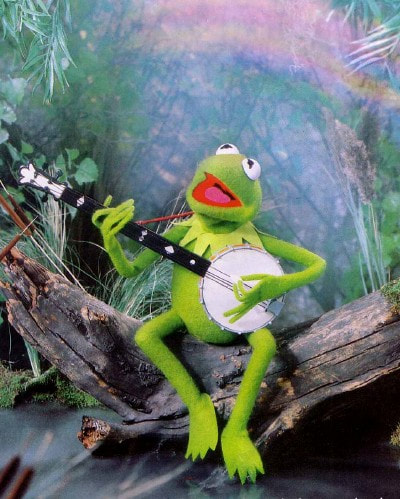 A strong southern breeze blew the blossoms off a row of young flowering trees. For a moment the petals swirled on the air like snowflakes and then lightly touched the ground. Scooting across the parking lot they came to rest along a curb forming a narrow stream of pink and white velvet. This little tributary of wonder was so breathtaking that I was compelled to stop and kneel on its asphalt shore. Gently, I scooped the petals into my hands. I felt their delicate softness as I brought my cupped hands to my nose. Breathing in their subtle fragrance, I satisfied a thirst I didn’t know I had. Ah! How the earth nourishes us in unexpected ways. On April 8th we here in central Ohio were in the path of the solar eclipse. For months the anticipation built. Schools closed for the day, people traveled hundreds of miles to get the best view. Even hospital workers left their duty stations and flowed out into parking lots to get a glimpse of this miraculous once-in-a-lifetime occurrence. As I sat poised at my window feeling the stillness and the darkness slowly permeate the peak of day, the voice of Kermit the Frog came to mind: What’s so amazing that keeps us stargazing? What do we think we might see? Maybe we are all wannabe believers, if not in miracles, then in magic. Mother Nature provides us with so much enchantment, and she does so while staying one step ahead of the scientists, perhaps to bedevil the calculations and the hypotheses, to continue to engage us, mesmerize us, and humble us. Moses once challenged God: “Show us your glory!” Old and weary, fearing an uprising from his followers, uncertain of the future or where they were going, Moses went into the mountains to have a word with God. Moses did not say, “Show us the money.” He said, “Show us your glory.” Surely, Moses was at a time in his life when he needed some encouragement, but I wonder if God was disappointed by the request. Every day glory surrounded the Israelites. The sea parted. Manna appeared on the ground for breakfast, quail wandered into the campground for dinner. Were the Israelites a bit like us? Too tired? Too preoccupied? Too self-focused? Too fearful? Fatigue and fear have a way of blinding us and dulling our senses. Perhaps for Earth Day 2024 our prayer should not be “show us your glory,” but help us to see it. Remove the blinding glare of narcissism and outrage, the pains of fear and discouragement, and help us to marvel at all the wonders that are free and available to us all. Help us to remember that we, too, are part of nature, another marvel of creation. Help us to experience the things we can believe in, even if fleeting. Remind us of wonder and possibility, of goodness, of things that are pure and without pretense. Help us to see the unseeable. Even though the solar eclipse has passed, help us to remember that the view is thick with majesty if we seek it just as earnestly. On Earth Day 2024, let us crack open the mundane everydayness of our lives, and stop watching bad news on our phones and TVs. Let’s get outside. No matter how discouraged we may be with the world, with life, nature can still surprise and delight us. The Earth is waiting. There is a living ecosystem beneath the sidewalk, butterflies are emerging from the bushes, buds are bursting with flower and fragrance, stars are streaking across the night sky, birds are singing…There is so much to believe in. Monday, April 22, is Earth Day. Meet me beneath the sky that we share, in the light and the warmth of the bright sun that spends itself for all of us. See you outside!
0 Comments
They paved paradise and put up a parkin' lot With a pink hotel, a boutique, and a swingin' hot spot… They took all the trees, and put 'em in a tree museum And they charged the people a dollar and a half to see them Don't it always seem to go That you don't know what you got till it's gone They paved paradise, and put up a parking lot… As I pulled into the parking lot of a large local shopping center, an earworm wriggled to life inside my head: “They paved paradise and put up a parking lot…” an old Joni Mitchell hit. I smiled to myself at the memory and the words, and I thought it might be time to hit the pavement at my favorite tree museum, The Franklin Park Conservatory. I went into Staples and purchased ink cartridges for my home printer. Finished with the errand, I stepped to the automatic exit doors. As they slid open, I heard it. Like a graceful flock of birds, the notes rose on the air and danced in the twinkling and brilliant sunlight of an unseasonably warm winter day. I was propelled in the direction of the sound and the light. Somewhere nearby, a violin played Leonard Cohen’s Hallelujah. The music was so moving that I felt the urge to both weep and dance at the same time. I was not alone in this. At that very moment, the doors of Target slid open and a tiny preschooler stepped onto the sidewalk and immediately froze in his tracks. His mother tugged on his arm, but he was there to stay, eyes wide and pointed in the direction of the music. Surely, the child saw it for the wonder that it was. We both stared at a man standing next to a portable speaker. We watched as he swayed and slid the slender bow across the strings of his violin. The instrument’s case lay open beneath a sign sharing news of the man’s financial hardships--his need to pay his rent and support two children. As I dug deep inside my purse for cash, I heard a couple walking by saying it was probably a scam. I was taken aback by the irony of the situation: people flocking to this shopping center to purchase without question food, pharmaceuticals, and other merchandise from companies that overcharge us, produce products that harm us, and create waste that destroys our environment, yet this gentle man producing beautiful music was suspect. His performance was just too foreign in this land of parking lots, boutiques, pink hotels, and swinging hot spots. In the beauty of the moment, I pledged my allegiance to the wide-eyed child still capable of trust and wonder. I took what cash I had and dropped the folded bills into the open violin case. “The world needs more music,” I said. The violinist nodded his thanks and continued to play. Filled with anticipation each time I step out onto a parking lot, I bring cash…and I listen. I hope to hear the stop-you-in-your-tracks sounds of that magic violin. Though I wish him well and that all of his needs will be met, I pray this street musician never stops playing. The world needs more music and a little bit of paradise in every paved parking lot. 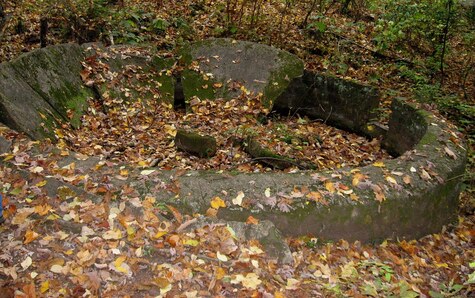 In the midst of a pandemic that feels endless, already there is talk of the next crisis--water. Knowledgeable people are banking on it, trading water on the commodities exchange. News footage validates the forecast with images of dry river beds, massive wildfires, and places where critical ground water has been pumped beyond its limits to replenish. Waterways are polluted by industrial toxins, discarded plastics, and human waste. Around the world, people are on the move leaving behind land that is turning to dust. I sit here in my uneasy chair for some self-examination. I have taken the supply of water for granted my entire life. I turn on the tap and out flows cool, clean water. As a teenager living in the growing suburbs of Pittsburgh, I became familiar with families living outside the city limits whose homes had wells. Sometimes I visited them in the summer when the water was low and laundry had to be hauled to the laundromat, and the grass turned brown, and showers were limited to keep the wells from running dry. It all seemed so primitive to me from my perch in the privileged suburbs where the sprinkler ran for hours. In my mind’s eye, wells belonged in the old American west, to a world of gunslingers and dusty cattle drives, in barren places depicted on shows like Rawhide and Gunsmoke, a world of black and white, certainly not living color. Earlier experience had led me to this faulty conclusion. There were two giant concrete discs in my grandmother’s grassy backyard. It was only in fleeting moments of bravery that I dared to run across one of the discs. More often, I walked around them fearing that something dangerous lurked beneath and was just waiting to grab me by the ankles. Perhaps it was our happy lives above ground that skirted trouble from below. Above the ground life was vibrant. Children laughed while grabbing juicy pears from the tree overhanging the porch. Aproned women snipped dewy roses from thorny bushes that climbed white trellises along the back wall. Damp clothes hung shoulder-to-shoulder on the clotheslines, shooing away danger as they blew and snapped in the swift summer breeze. Screen doors slammed as we ran in and out of the house. Familiar voices filled the air like music. Somewhere along the way, I learned that the concrete discs in my grandmother’s yard were lids. They covered the cisterns that once upon a time collected rainwater to support life and clean laundry inside my grandmother’s house. I was dumbfounded. I never imagined that the ultra-modern home of my grandmother had a frontier history. How could that be when every modern innovation in the world was introduced to me there: wall-to-wall carpeting, automatic dishwashers, recliner chairs, color TV, and air conditioning? Clearly, gathering rain water was ancient history. Problem solved. We were modern taps and pipes people who relied upon the city water department to do the heavy lifting and keep the river of water flowing into our home. The magical innovations that appeared inside my grandmother’s house were not only evidence of a changing infrastructure, but evidence of a changing thirst, and we, like many Americans, became insatiable. We wanted more of the new, the time-saving, and the convenient. The economy was booming in the post-war era and so were the number of babies. Life had been hard. Now it was good. It was easy to believe that the frontier days of wells and cisterns were a thing of the past. We never imagined that water itself would disappear in our quest to make life not just easier, but effortless. We grew up as descendants of the American frontier and were fortunate to bring our children into a world of abundance and convenience, but our children face life on a new frontier, the frontier of climate change. Will their lives be better or more difficult than ours? As I downsize, focusing on what to keep and what to leave behind for my children, I look at my stuff and realize that I have never owned anything more precious than water. If I could do it all again, I would trade automatic dishwashers and color TVs for the life that existed in my grandmother’s backyard. I would buy insurance so that my children would be sure to know the cool, soft pleasure of moist green grass between their toes, the sweet flavor of pear juice trickling down their chins, the musky fragrance of velvety roses tickling their noses, and the sound of damp, clean clothes snapping in the breeze shooing away danger. I would have lifted those lids and saved for my children an inheritance that is the birthright of all children, the life-giving, thirst-quenching miracle that is water. 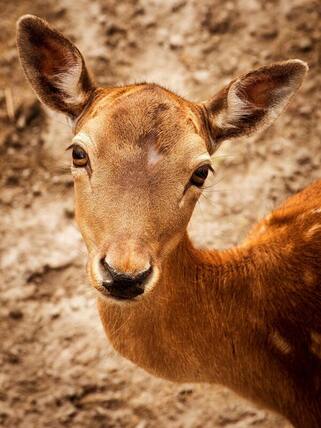 A friend of mine lives in a suburban neighborhood where the wildlife is becoming too friendly, some might even say BOLD. Despite repeated attempts to discourage them, the groundhogs have taken up residence underneath decks and porches and the deer walk right up to the front doors and ring the bells. The family pets do little to deter the wildlife, and that includes a pet pig that can moonwalk on command. It appears that the animals have taken up the lives we used to have. My friend spent the first half of the pandemic trying to woo a groundhog out from underneath her back deck and then keep him out. Since I am not sure where all of this is headed, my friend shall remain anonymous. Let’s just call her Q. Q began her interventions by placing a small fence around the groundhog’s front door. To no avail. The groundhog simply dug a bigger hole and went underneath the fence. Next, Q piled small stones around the entrance to the tunnel, but the creature moved the stones to the side, crafted a pair of gargoyles that looked remarkably like my friend, and went on inside. Q thought the natural animal fear of a predator might work. Q got a large plastic owl and placed it at the entrance. The groundhog knocked the owl over, slapped it to the side, and spit on it before regaining entry to its groundhog digs. Giving up on barriers, Q then tried appealing to the groundhog’s senses. Q sprayed the area with ammonia. Again, to no avail. Perhaps, the scent was no worse than the typical smells of a groundhog home. Q also tried sprinkling cayenne pepper at the entry, but it appears that the creature preferred life spicy. Shiny, spinning pinwheels were no distraction and may have been enough extra wind power to provide electricity to the underground tunnel. Q tried sleep deprivation as a discouragement strategy and kept bright lights focused on the groundhog’s home night and day. Q was pretty sure she heard the groundhog laughing at her. Desperate, Q left the groundhog a written notice of eviction and posted a Keep Out sign at the entrance to the hole beneath the deck. Q later found a tiny pair of reading glasses in the snow. The Keep Out sign was turned around with the words Live, Love, Laugh printed on the back. There was no response to the eviction letter. Q then sprinkled baking soda around the deck to track the groundhog’s footsteps so that she would know when it left the tunnel and which direction it had gone. While the animal was out, she backed up the truck and filled the area with large rocks. Q says she hasn’t seen the groundhog since, but Q has no will left. If Q sees signs of the groundhog’s return, she plans to declare him a dependent on her income tax return. Now the neighborhood is getting together on a Zoom call to discuss the deer problem—upping their game so to speak. My friend is eager to hear what the neighbors have to say. This has me worried. We are all a little on edge given the politics, the pandemic, and the weather. I remind my friend of the lyrics to that old folk song, Home on the Range: …where the deer and the antelope play…never is heard a discouraging word and the skies are not cloudy all day. We need that… but I think it might be too late. 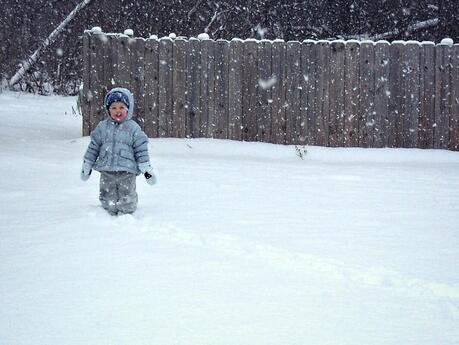 The first lacey snowflakes drift past my window. They are the delicate advance men for a fierce nor’easter on its way. The anticipating world is already subdued. A forecast of snow brings with it a universally shared sense of caution. Go slow. Take your time. Tardiness will be excused. Don’t go out if you don’t have to. The snow provides a buffer against sound and activity. All is surreal. We watch the world, but are we in it? On such a day, the snow-covered earth is like an innocent bride in a gown of white while home is the church where children give thanks for snow-prayers answered. Staring out my window this morning, I feel the way I once did as a child living in the hilly suburbs of Pittsburgh, Pennsylvania. It was a time when the world had no problem sheltering in place. It was the average lifestyle. During the day, neighborhoods were devoid of traffic. Dads had the only cars with them at work. At home, Moms were busy with all of the hard labor of keeping house and maintaining large families. Kids went only where their feet could take them. Most businesses were closed on Sundays and there were blue laws. For school-age children, the lights went out by 9:00 PM, and the three television networks stopped broadcasting after the nightly news. Depending on the location, a ten or eleven o’clock public service announcement adjourned the day by asking parents, “Do you know where your children are?” We had a large bay window in our living room. On a snow day, that window was our weather channel. We were all budding Al Rokers, shouting weather updates from the sofa and providing special reports of kids sledding or cars skidding down our steep hill. When the snow accumulation became deep enough, we bundled up and went outside to play in the yard, throw snowballs, sled, or build snowmen. We might also shovel the area around the mailbox to make way for the postman or sweep the walkway to the front door for the paperboy and the milkman. My little brother, a budding entrepreneur by age 8, was quick to mow a lawn or shovel snow. He was born knowing how to make a buck. One winter, HB got his hands on a used snow blower. He made up little business cards offering services to the neighbors. He cranked out the cards on a small hand-held device that contained an ink-filled roller. In addition to my brother’s name and our home phone number, the cards listed his services including lawn mowing and blow jobs. We didn’t understand our father’s reaction to the cards, but they were confiscated and a new batch prepared with parental supervision. After hours spent outdoors playing, shoveling, and giving blow jobs, we came back inside through the basement, stripping off our ice-crusted boots and top layer of clothing. Clothing was hung on a makeshift clothesline where it could drip dry into the floor drain instead of all over the hardwood floors upstairs. We made hot chocolate from Nestle’s Quick which we all agreed would have been much better if only we had marshmallows. We spent hours playing Monopoly, and when that got old, we sleuthed with Nancy Drew, or helped to fold laundry. Snow days had the pace of a day one might expect in heaven. By nightfall, we were exhausted but happy. We paused in our home chapels to pray for more snow. Sometimes God heard us. More often, he took mercy on our mothers and gave priority to their prayers. He sent sunshine. 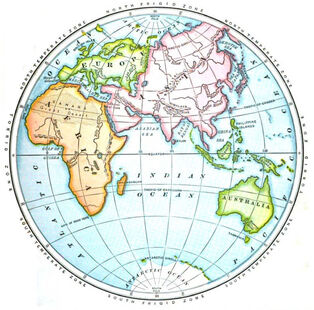 Shuffling through my book and papers, I come across an article, “The Geography of Childhood.” Sounds technical. I reflect on my memories of geography class, and I wonder:
I read on and discover that I am completely off course. The article is about shrinking play areas. Turns out that, today, many children never play outside the confines of their own backyards without parental supervision. Wow! That is a big change in geography. In Childhood where I grew up, we left the house in the morning with instructions to be back by dinner time or dark whichever came first. Sometimes we wandered back sooner if we were hungry or if the population of Childhood had shifted to our own backyard. Trick-or-treat was always a big deal because things only got started at dark. As pre-teens and teens, we wandered the neighborhood until every single last porch light went out. That could be close to midnight in the suburbs. No one called the police because we were out or because we were teenagers. Back then, teens were part of Childhood too. We played outdoors rain and shine. We were really good at getting dirty. There was no professional lawn care back then, so we could munch on grass and clover without risk of death or brain damage. We found a thousand uses for dandelions. The only pest control business in town was the fifty kids chasing lightening bugs on summer evenings. None of us had an entire set of anything. We imported and exported and used our natural resources. It was also known as sharing. We made our way to an empty lot or big back yard. One kid brought a bat. Someone else had a ball. We scrounged from nature to come up with the bases, and we shared gloves. Someone might use my roller skates while I rode her bicycle. The clouds were free for a lengthy viewing and so were the stars. We didn’t have folding chairs and rolled up mats. We had our play clothes, and we stretched out on our backs. Further shuffling of the items on my shelf brings me to an old book about nature-deficit disorder. Turns out the problem is not just shrinking outdoor space, but also limited time spent outside. I’m no scientist, but I think there might be a relationship between time and space. And what about kids who don’t even have backyards? They might need intensive care. The nature-deficit disorder author reports that he spoke to groups of children asking them why they didn’t play outside more often. Many of the children replied that they didn’t play outside because there weren’t enough outlets. Back in the day when Childhood was a simple, old frontier town, outlets had nothing to do with electricity. The word was associated with the many ways children dispensed with their own energy outdoors. Grown-ups did not want those outlets in their houses. That kind of power resulted in damaged furniture and pictures falling off the walls. I have seen evidence of the changing science and geography of Childhood. For years I have driven through neighborhoods on beautiful summer days and never seen a single child. Are they becoming extinct? I know I should worry about disappearing polar bears and rhinos, melting ice and climate change, and I do care about those things. But will they matter if Childhood falls off the map? Will there be anyone left to care? |
AuthorLilli-ann Buffin Archives
April 2024
Categories
All
|
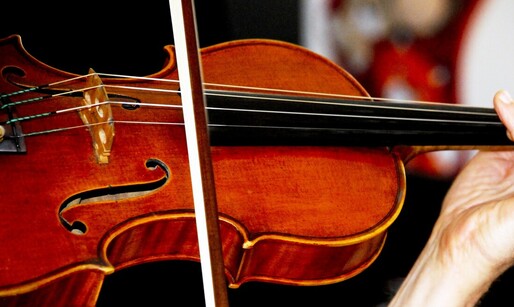
 RSS Feed
RSS Feed